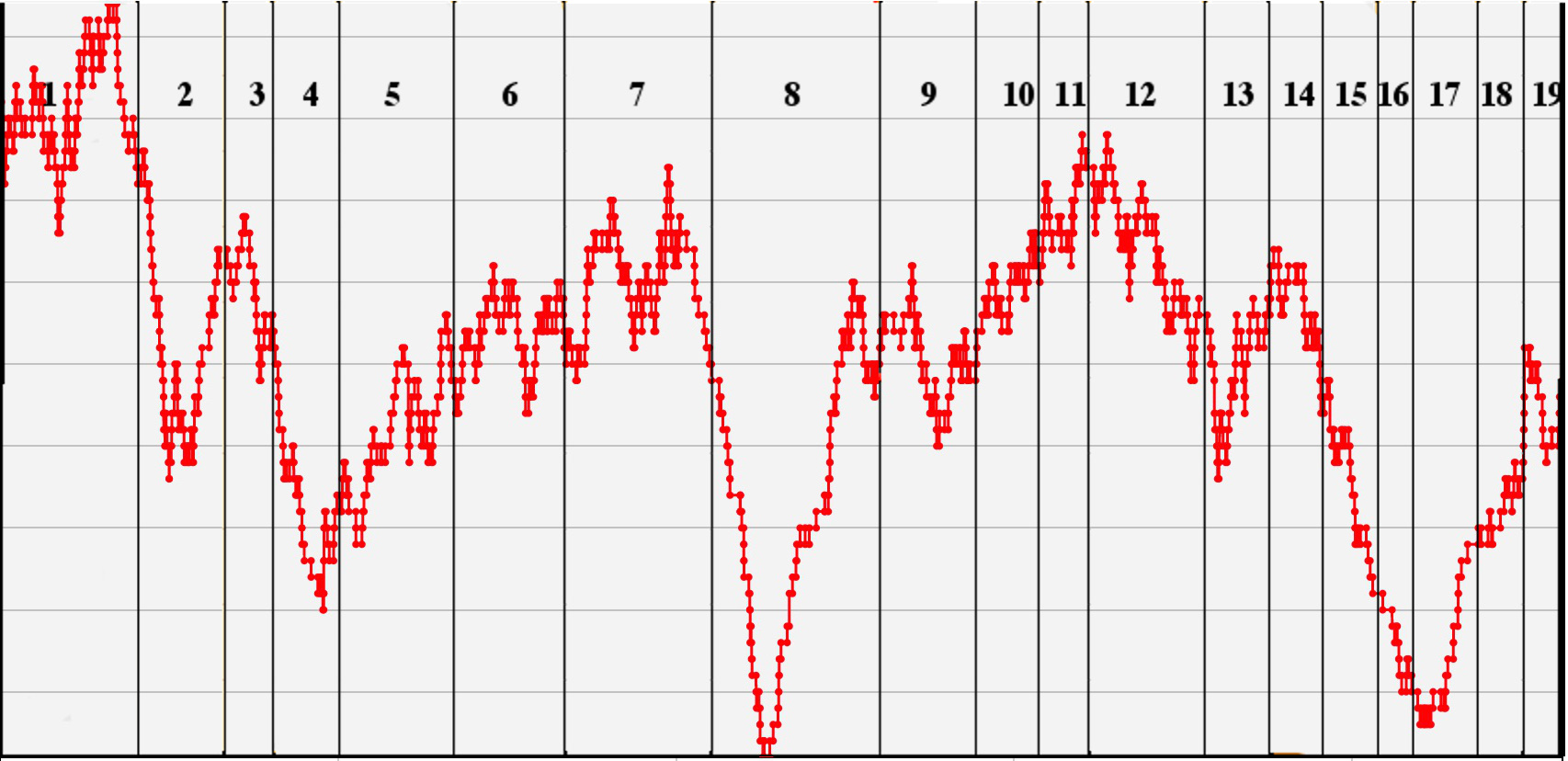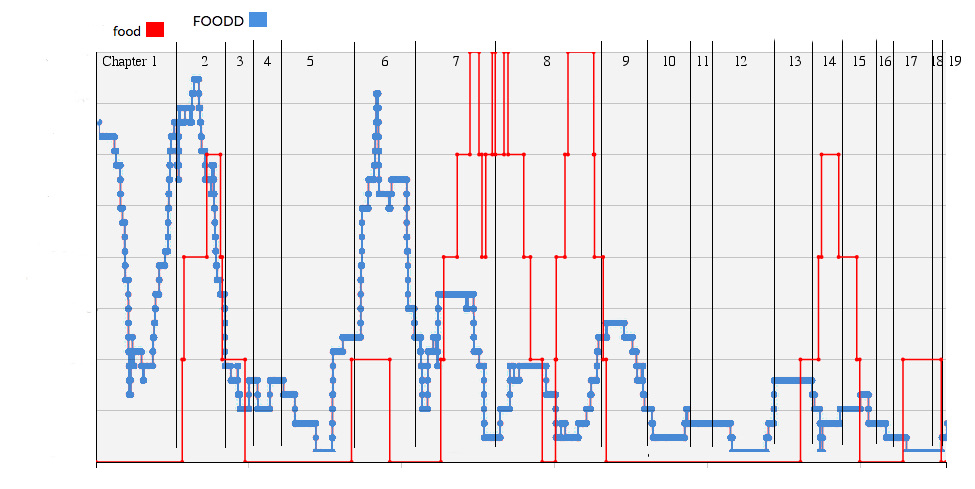Good morning, Word Fans. I hope it doesn’t intrude on your peace over the next three days, but the blog is going into overdrive to fulfill its other primary role as my lab notebook. Please practice good self-care: if you need to, unsubscribe until Sunday afternoon, when things should return to normal.
Just over half of the hyphenated words in The Hobbit are perfectly ordinary English words, per the OED. Some of them may have no hyphen in the preferred spelling, some may have a space instead of a hyphen between the elements, but the hyphenated forms are found at least in the example sentences of the OED.
The other part of the hyphenated words have received the JRRT tag. Of these, some are given by OED specifically as creations of Tolkien, such as “elf-king“! Others are credited to Tolkien for introducing the hyphenated form, for example “riddle-game”. Some, like “raven-messenger” are in the OED just so, but Tolkien has used them with a completely new meaning, earning the tag. The majority, including Middle-earth specific names like “Foe-Hammer” as well but many more plain words such as “thunder-battle” are simply not found in OED at all.
In what pattern did Tolkien use these inventions? Is there anything to be discerned from the map of them?

Fascinating. OK, I’m going to compare it to yesterday’s graph of all hyphenated words:
 As the Tolkien Professor would say, “What do we see?” Here’s a clue we can use to compare the charts: Lexos makes the chart fit the space, even if the height of the red line is on a different scale from chart to chart. Since the JRRT words number just under half of the total hyphenated words, know that the scale is doubled. In other words, the “pretty full in the beginning of chapter five” appearance of the red line on the first, JRRT, graph would be equal to “filling up just about half of the available height” on the second, All Hyphens graph.
As the Tolkien Professor would say, “What do we see?” Here’s a clue we can use to compare the charts: Lexos makes the chart fit the space, even if the height of the red line is on a different scale from chart to chart. Since the JRRT words number just under half of the total hyphenated words, know that the scale is doubled. In other words, the “pretty full in the beginning of chapter five” appearance of the red line on the first, JRRT, graph would be equal to “filling up just about half of the available height” on the second, All Hyphens graph.
- The big Chapter One peak of hyphenated words is not driven by JRRT originals.
- The peak in JRRT words at the end of Chapter 3 is driven by all the doings in Rivendell of Elrond the elf-friend, fair as an elf-lord, his house full of story-telling, and who explains that the swords just found are not troll-make but made for the Goblin-wars: Goblin-cleaver and Foe-hammer.
- I observe that the first half of Chapter 5 – full of sound words like drip-drip-dripping – is about half-full on the All Hyphens graph and quite full on the JRRT graph; in other words, Tolkien created the hyphenated words which set the stage and open the action for Gollum’s chapter.
- I see that there’s a dip in the JRRT graph at the end of Chapter 6 which is not echoed in the All Hyphens graph. Although there are JRRT words there, there are also pine-needles and frying-pans, quite ordinary words.
- After Chapter 6, the JRRT graph roughly parallels the All Hyphens graph; his original hyphenated words take up their expected proportion of all hyphenated words.


 As the Tolkien Professor would say, “What do we see?” Here’s a clue we can use to compare the charts: Lexos makes the chart fit the space, even if the height of the red line is on a different scale from chart to chart. Since the JRRT words number just under half of the total hyphenated words, know that the scale is doubled. In other words, the “pretty full in the beginning of chapter five” appearance of the red line on the first, JRRT, graph would be equal to “filling up just about half of the available height” on the second, All Hyphens graph.
As the Tolkien Professor would say, “What do we see?” Here’s a clue we can use to compare the charts: Lexos makes the chart fit the space, even if the height of the red line is on a different scale from chart to chart. Since the JRRT words number just under half of the total hyphenated words, know that the scale is doubled. In other words, the “pretty full in the beginning of chapter five” appearance of the red line on the first, JRRT, graph would be equal to “filling up just about half of the available height” on the second, All Hyphens graph.
